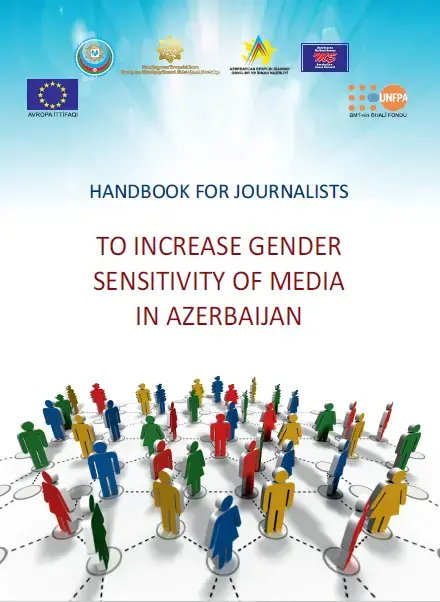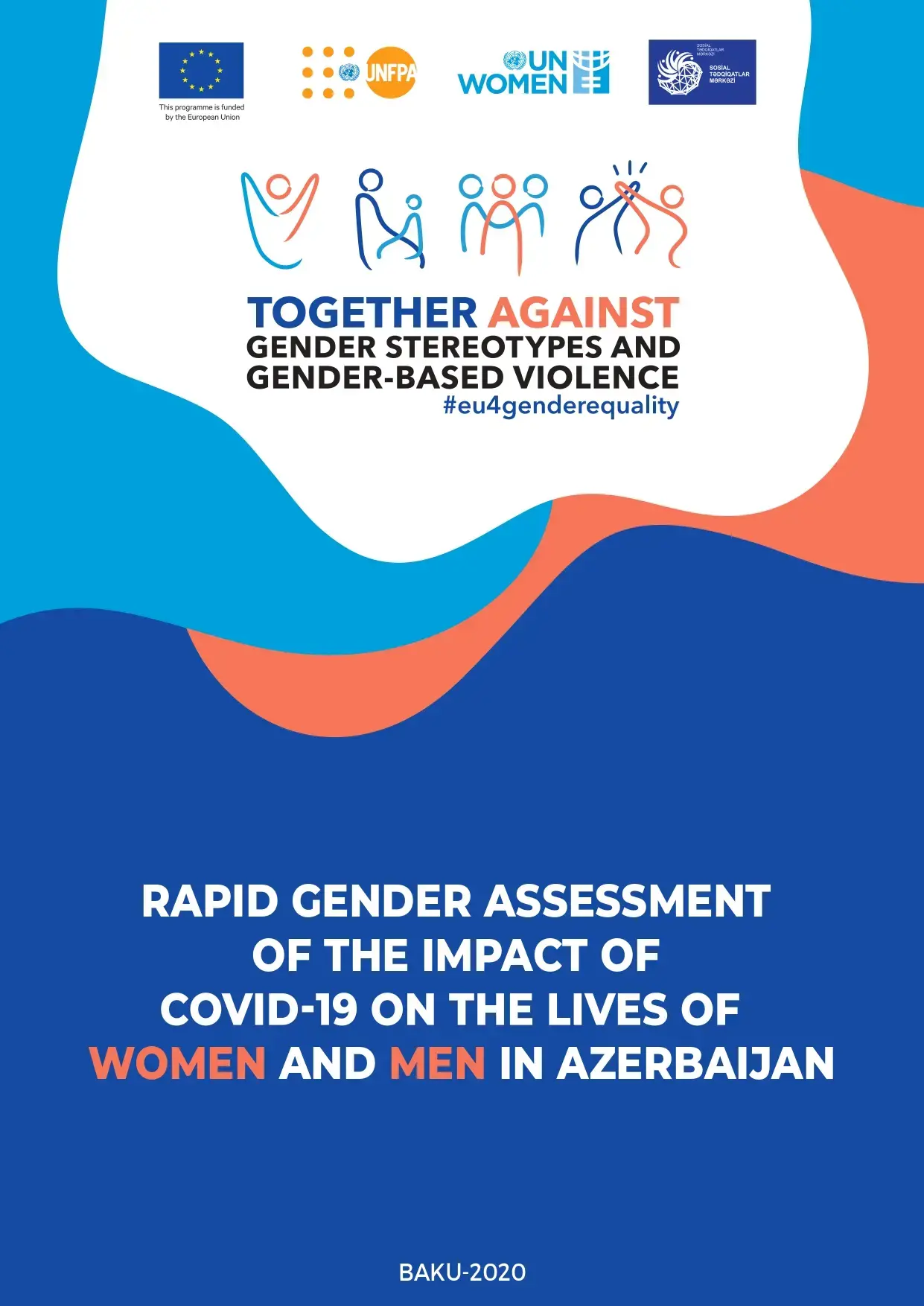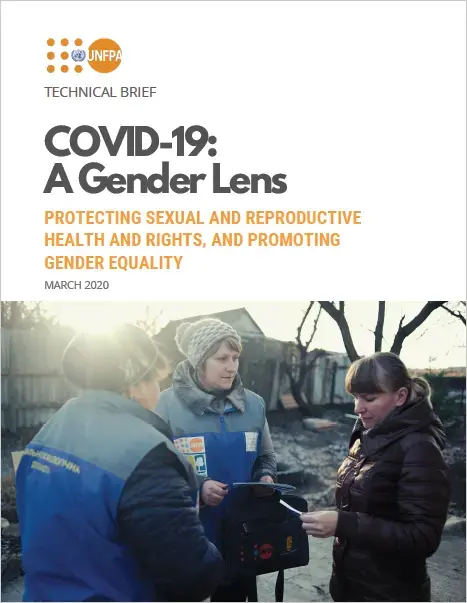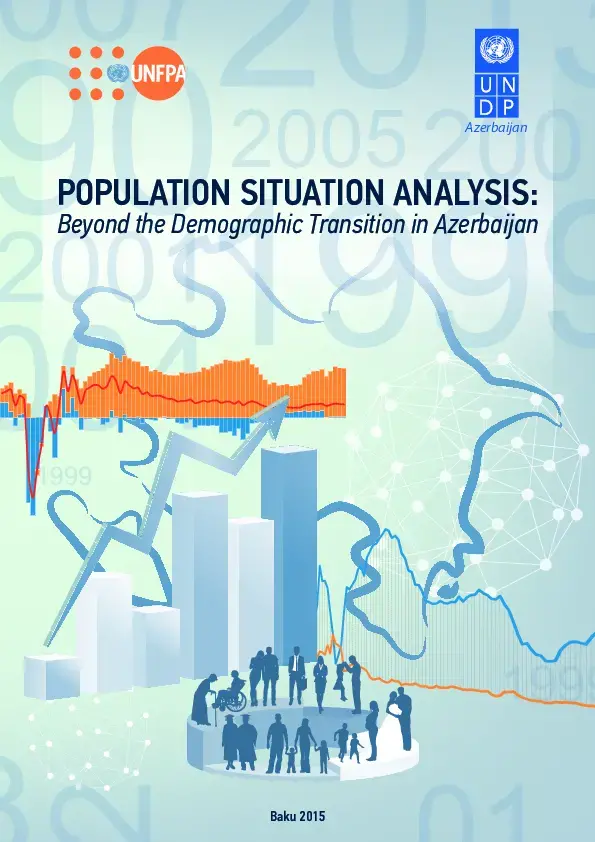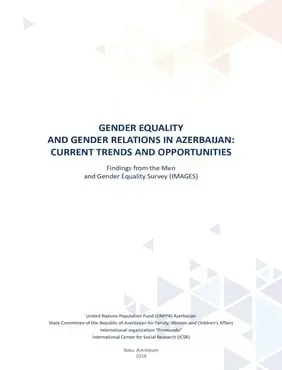Publications
Publications
Publication
“Active Ageing Index ‘AAI’ for Azerbaijan: A comparison with EU Countries” Report
The “Active Ageing Index ‘AAI’ for Azerbaijan: A comparison with EU Countries” Report was commissioned in the framework of the joint project of the Ministry...
Read more
Publication
The economic cost of violence against women in Azerbaijan
Violence against women (VAW) has been acknowledged worldwide as one of the most pervasive violations of human rights. Empirical evidence has shown that it affects women disproporti...
Read more
Publication
Handbook for Journalists to Increase Gender Sensitivity of Media in Azerbaijan
“The Handbook for Journalists to Increase Gender Sensitivity of Media in Azerbaijan” contains detailed information and guidance for media representatives on increasing ...
Read more
Situation Report
Rapid Gender Assessment of the impact of COVID-19 on the lives of women and men in Azerbaijan
This report presents the findings of a rapid gender assessment of how the COVID-19 pandemic has affected the socio-economic security and sources of livelihood of women and men in A...
Read more
State of World Population Report
UNFPA State of World Population Report 2020
Every year, millions of girls around the world are subjected to practices that harm them physically and emotionally, with the full knowledge and consent of their families, friends,...
Read more
Technical Reports and Document
COVID-19: A Gender Lens
This technical brief document, prepared by the UNFPA headquarters, reflects a gender glance at COVID-19 pandemics.
Read more
Publication
Global Programme to Prevent Son Preference and the Undervaluing of Girls: Improving the sex ratio at birth in select countries in Asia and the Caucasus. Azerbaijan Country Profile.
This country report was prepared within the frame of the EU-funded Global Programme to Prevent Son Preference and the Undervaluing of Girls: Improving the sex ratio at birth in sel...
Read more
Publication
POPULATION SITUATION ANALYSIS: Beyond the Demographic Transition in Azerbaijan
This report presents an analytical overview of the modern demographic situation and trends in population developments of the Republic of Azerbaijan in the early 21st century. It ...
Read more
Publication
GENDER EQUALITY AND GENDER RELATIONS IN AZERBAIJAN: CURRENT TRENDS AND OPPORTUNITIES Findings from the Men and Gender Equality Survey (IMAGES)
The International Men and Gender Equality Survey (IMAGES) – created and coordinated by Promundo and the International Center for Research on Women (ICRW) – is one of th...
Read more



